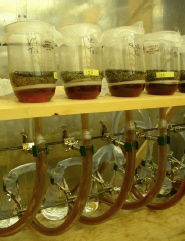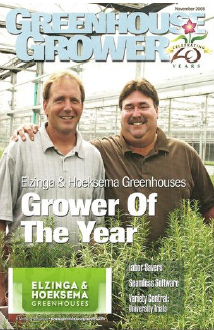Summary
Investigator: Eric B. Nelson, Dept. of Plant Pathology, Cornell University, Ithaca, New York
Project location: Cornell University
Compost and vermicompost are microbiologically rich amendments that promote plant growth and can suppress plant diseases. However, the inconsistency of disease suppression prevents growers from fully harnessing this potential benefit. There remains a need for scientifically based tests that are verified in the public sphere to determine if a specific material can suppress plant diseases. This project focuses on increasing our understanding of the complex microbial mechanisms behind compost-mediated disease suppression in order to develop new techniques to predict compost suppressiveness.
The overall goal of this project is to increase the efficacy and consistency of using composted animal manures to enhance disease suppression in organic vegetable and fruit production systems.
Specific objectives include:
1. To increase our understanding of how microbes present in compost and vermicompost prevent plant diseases, specifically Pythium damping off:
- To identify key microbial species associated with disease suppression
- To identify potential mechanisms of disease suppression
2. To use this understanding to develop tools for predicting whether or not a compost or vermicompost will suppress Pythium damping off;
3. To document the effect of composting process (vermicompost vs. thermogenic or “hot” compost) on disease suppressive properties of the finished material.
This project is part of a much larger vermicompost/vermicompost tea study taking place at Cornell that involves researchers from several departments, extension staff, as well as both conventional and organic fruit and vegetable growers and nursery operations. Our vermicompost industry collaborator has been working with growers over the 2006 and 2007 seasons to develop application methods and rates for vermicompost in a variety of production systems. Several extension workshops will be held in partnership with the Cornell Waste Management Institute over the next three years where growers and researchers can share their experiences in experimenting with vermicompost.A final report describing the results of this project is expected in December 2009.


